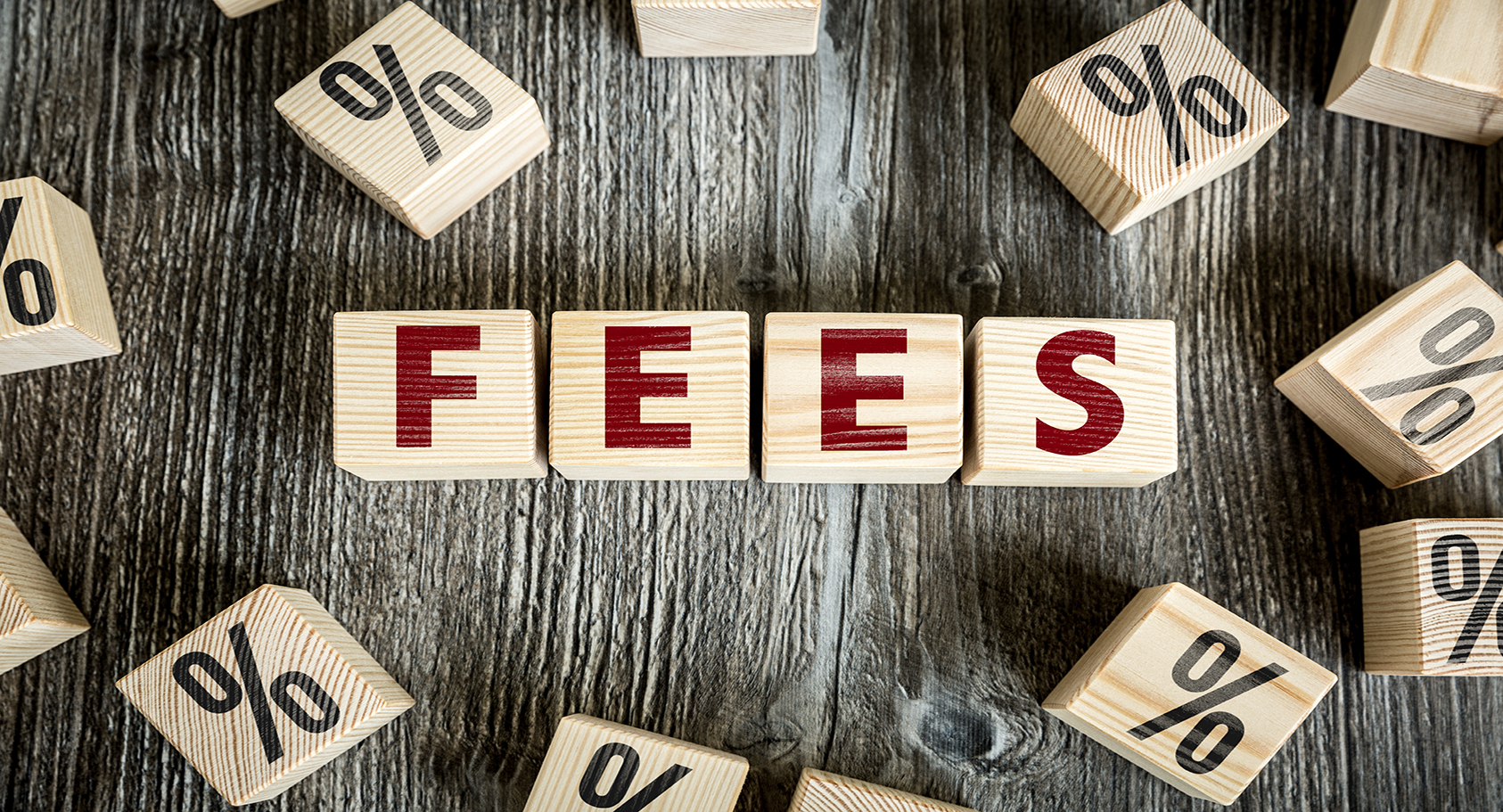Are There Fees Associated With IVAs?
An Individual Voluntary Arrangement (IVA) is a legal debt solution for residents in England, Wales, and Northern Ireland, enabling them to repay unmanageable debts at a reasonable rate. As a form of insolvency, an IVA is established and overseen by an insolvency practitioner (IP). This option allows for the writing off of up to 81% of unsecured debt through government legislation, presenting an alternative to bankruptcy.

Looking to apply for an IVA?
It is crucial to understand that IVAs come with associated fees. These IVA fees are paid to the insolvency practitioner for their services in setting up, managing, and administering the IVA. Generally, the fees are divided into two categories: the Nominee fee, which covers the initial setup, and the Supervisor fee, which accounts for ongoing management and administration. The fees are typically incorporated into the monthly repayment plan, ensuring that the debtor does not face additional financial burdens.
While IVAs offer a viable solution for managing unaffordable debts, it is essential to be aware of the associated fees and payment methods before entering into such an arrangement. By understanding the costs and structure of an IVA, individuals can make informed decisions about whether this debt solution is suitable for their financial situation.

Go to …
- Why choose an IVA?
- Do you need to pay for an IVA?
- When do you have to pay IVA fees?
- How much does an IVA cost?
- What are the minimum monthly payments into an IVA?
- How long do you pay an IVA for?
- IVA fees when referred by the court
- Can I get help with the IVA cost?
- Is it worth getting an IVA proposal?
Why choose an IVA?
Individual Voluntary Arrangements (IVAs) offer a viable solution for those struggling with unsecured debts exceeding £5,000. This debt management strategy effectively prevents interest and charges from escalating, providing much-needed financial relief. By opting for an IVA, individuals can benefit from reduced monthly repayments, starting as low as £85.
Choosing an IVA comes with several advantages. Firstly, it allows debtors to write off a significant portion of their unsecured debts, easing the burden of repayment. Additionally, an IVA prevents further accumulation of interest and charges, ensuring that the debt does not spiral out of control. Furthermore, the reduced monthly payments make it more manageable for individuals to meet their financial obligations without compromising their essential needs.
An IVA is an attractive option for individuals facing substantial unsecured debts. It not only enables them to write off a portion of their debts but also prevents further interest and charges from accruing. Moreover, the manageable monthly payments ensure that individuals can fulfil their financial commitments without undue strain. By applying for an IVA, debtors can regain control of their finances and work towards a more stable financial future.
Check if you qualifyDo you need to pay for an IVA?
Individual Voluntary Arrangements (IVAs) inevitably involve fees to cover the Insolvency Practitioner’s (IP) services. While IP costs can differ, they generally average around £5,000. Although this may appear as a substantial amount, especially for those experiencing financial difficulties, it is crucial to understand that these costs and fees are incorporated into the monthly debt repayments.
The fees are deducted from the creditors’ payments, ensuring that the individual does not have to arrange any additional payments. This arrangement simplifies the process and alleviates concerns about extra expenses. By incorporating the fees into the monthly repayments, IVAs become a more manageable and accessible solution for those seeking debt relief.
In summary, while there are fees associated with IVAs, they are included in the monthly debt repayments, eliminating the need for separate payments. This arrangement makes IVAs a viable option for those struggling financially, as the fees do not impose an additional burden on the individual.

Call us on 0800 464 7235
Our trained advisors are here to help, so if you think an IVA proposal is one of the best debt solutions for you, don’t hesitate to call us on 0800 464 7235 to speak to one of our trained debt advisors or click below to see if you qualify…
Check if you qualifyWhen do you have to pay IVA fees?
IVA payment amounts depend on the specific provider. Our partners provide complimentary debt advice and do not require upfront fees to initiate an IVA. Fees are only charged upon approval by your creditors. Importantly, these fees are incorporated into your monthly payments, meaning they are deducted from the creditor’s portion, not your own.
The IVA proposal also allows for a percentage of your payments to be distributed starting from the third month of the arrangement. Consequently, outstanding balances are reduced from the beginning of the agreement. In certain instances, creditors may modify the IVA terms, eliminating the need for your insolvency practitioner to make payments to them starting from the third month.
How much does an IVA cost?
Individual Voluntary Arrangements (IVAs) involve three types of fees, each covering distinct aspects of the Insolvency Practitioner’s (IP) role.
Firstly, the nominee fee addresses the preparation of the IVA proposal. This includes assessing your financial situation, proposing repayment offers to creditors, and covering administrative and facilitation costs. The minimum cost for this fee is usually £1,000, and legally, only an IP can perform these tasks.
Secondly, once the IVA is approved by the court, the IP assumes the role of supervisor, incurring a supervisor’s fee. This fee covers the ongoing management of the IVA, such as collecting and distributing monthly repayments, handling queries and annual reviews, and managing creditor relations. The fee typically ranges from 15-20% of the payments made, or in some cases, a flat fee may be applied.
Lastly, disbursements are payments made to third-party companies for support during the IVA process. These may cover costs such as software licenses, insurance, and required regulations. The average cost for disbursements is around £1,200 per case, and may also include payments for additional services aimed at providing the best return for creditors.
Check if you qualifyWhat are the minimum monthly payments into an IVA?
IVA monthly payments depend on an individual’s financial capacity, with the possibility of contributing as low as £85 per month towards outstanding debts, provided creditors agree. However, creditors may not approve an IVA proposal if the proposed monthly amount is deemed insufficient. In such cases, alternative debt solutions like debt relief orders might be more appropriate.
To determine the affordable monthly payment, a skilled debt help advisor can conduct an income and expenditure assessment prior to initiating the IVA process. This assessment helps establish a suitable payment plan, ensuring that the debtor can consistently meet their financial obligations throughout the IVA term.
How long do you pay an IVA for?
Individual Voluntary Arrangements (IVAs) generally span five years, but extensions may be granted to ensure the completion of agreed payments. If meeting the payment requirements becomes challenging, the IVA could be extended by an additional 12 months. Even after this extension, if the payments remain unmanageable, the Insolvency Practitioner (IP) will collaborate with both the debtor and creditors to explore the possibility of further extending the arrangement.
It is worth noting that early completion of IVA payments is an option for those who find themselves able to make a lump sum payment. This flexibility allows debtors to adapt their payment plans according to their financial circumstances, ensuring a more manageable approach to debt resolution. In summary, the duration of an IVA depends on the individual’s financial situation and their ability to make timely payments. Extensions and early completions are available to accommodate varying financial conditions, ultimately aiming for a successful resolution of the debtor’s financial obligations.
Check if you qualifyIVA fees when referred by the court
Individual Voluntary Arrangements (IVAs) can be a viable option for those seeking debt relief. However, it is essential to understand the associated fees, especially when referred by the court. When an IVA is initiated during court or bankruptcy proceedings, a fee is required. This cost, typically £335, is paid to the Insolvency Practitioner (IP) managing the case. The payment is deducted from the deposit initially provided to the court for bankruptcy.
In addition to the initial fee, there may be other costs associated with an IVA. These expenses can include the Nominee’s fee, which covers the IP’s work in setting up the arrangement, and the Supervisor’s fee, which accounts for the ongoing management of the IVA. Both fees are usually incorporated into the monthly payments made under the IVA, ensuring that the debtor does not face additional financial burdens.
It is crucial to be aware of these fees when considering an IVA as a debt solution. Understanding the costs involved allows individuals to make informed decisions about their financial future. By carefully evaluating the fees and other factors, debtors can determine if an IVA is the most suitable option for their circumstances.
When an IVA is referred by the court, a fee of £335 is required, paid to the IP and deducted from the bankruptcy deposit. Additional fees, such as the Nominee’s and Supervisor’s fees, may also apply. Being aware of these costs is essential for making informed decisions about debt management and selecting the most appropriate solution.
Can I get help with the IVA cost?
Individual Voluntary Arrangements (IVAs) are a debt solution that, regrettably, do not qualify for legal aid. Despite this, individuals seeking debt relief can still access free debt advice to find a suitable solution tailored to their financial situation.
Various organisations offer free consultations and guidance on debt management, allowing individuals to explore different options, including IVAs, without incurring additional costs. By taking advantage of these services, one can make an informed decision on the most appropriate course of action for their unique circumstances.
It is essential to keep in mind that while IVAs may have associated fees, these are typically factored into the monthly payments agreed upon during the IVA process. This means that the debtor will not face any unexpected expenses once the IVA is in place, making it a manageable and predictable solution for many.
Although legal aid is not available for IVAs, free debt advice can help individuals navigate their options and find the best debt solution for their needs. Utilising these resources can lead to a well-informed decision and a more stable financial future.
Is it worth getting an IVA proposal?
For those struggling to manage their debt and maintain a monthly budget, an Individual Voluntary Arrangement (IVA) may be a viable solution. IVAs are designed to help individuals with unsecured debts of £6,000 or more, owed to at least two creditors. They can encompass various types of debt, including credit cards, loans, overdrafts, and council tax arrears.
IVAs are available to residents of England, Northern Ireland, and Wales who have a steady income. By consolidating debts into a single monthly payment of at least £85, IVAs can help regain control over personal finances. However, it is crucial to seek authorized and regulated advice before entering into an IVA or any other debt solution.
Consulting experienced advisors can provide valuable guidance on the payment process and potential debt reduction. In some cases, individuals may be able to write off up to 81% of their unsecured debt. In summary, an IVA can be a worthwhile option for those seeking to manage substantial unsecured debt, but it is essential to obtain professional advice to ensure the best possible outcome.
Apply for helpPrefer to talk? We’re ready to listen and help you
Get Help Online
Answer a few simple questions and one of our experts will get in touch.
Get Help OnlineSend us an email
Use our online form to get in touch and we’ll respond as soon as we can.
Send email


